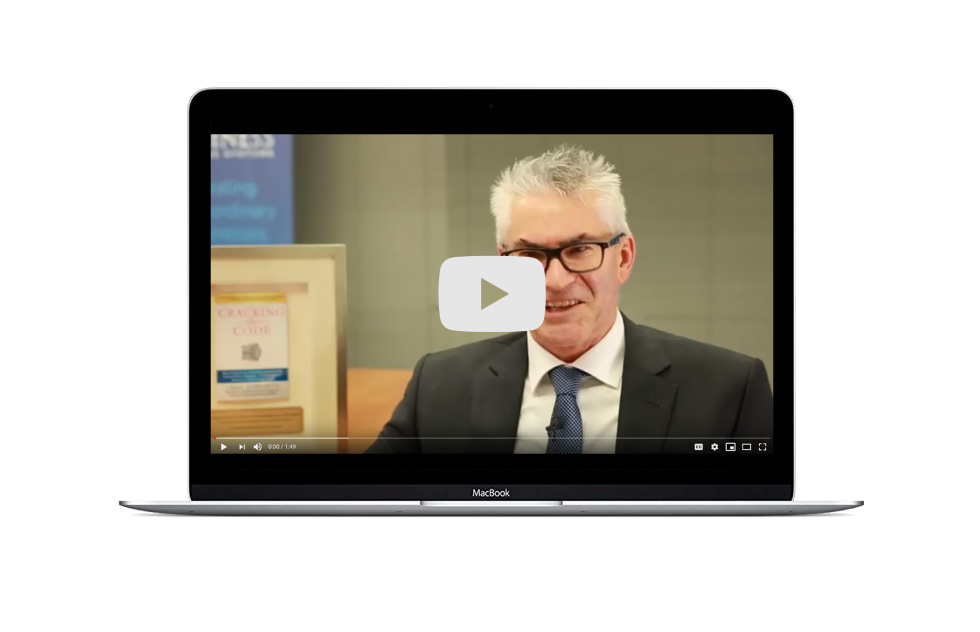Does Your Marketing Strategy Match Your Clients’ Buying Strategy?
Posted by Greg Roworth on Nov 12, 2020

If your marketing strategy doesn’t match your potential clients’ buying strategy, it seems obvious that your ability to acquire new clients is going to be limited, right?
Most consultants, coaches, accountants and others in professional services have typically seen referrals as their most reliable and consistent source of new work and new clients. Whether these come organically as the result of existing clients passing on your/your firm’s name or whether you work at building relationships through networking, in the past, these have been the most common and reliable source of new opportunities.
Did you pick up that little, but highly important phrase there?
In the past.
Yes, in the past.
It now seems that buying strategies have changed in the professional services area.
A recent (this year in the COVID environment) survey conducted by Hinge Marketing Research, focusing on buyers and sellers of consulting and other professional services, identified a major shift in buying strategies that has been happening for a few years, but has now reached a significant and potentially dangerous level, if referrals are you major source of new leads.
The survey highlighted two critical factors for firms wanting to attract new clients, which were related to:
- Beliefs about understanding what your market feels its challenges are, and
- Beliefs about how clients find their way to you.
The survey found that most professionals believe they understand the challenges their potential clients face. The results highlighted that professionals were quite out of touch with the real needs of their clients.
The challenge rated most important by buyers was rated number five by sellers. The second biggest challenge was what sellers thought was their clients’ number one. However, the third biggest challenge for buyers was rated number six by sellers.
When being relevant to clients’ needs is a major determinant of clients’ buying choices, being sure about what is relevant to them must come from your current level of intimacy with them, rather than your past presuppositions. Most professionals appear to be out of touch and not doing enough to understand their clients. Don’t let your ego get in the way of considering that you may be one of those professionals whose beliefs are not based in reality. Surely if would be best to check that out rather than live with your head in the sand.
The second element of beliefs about how clients find their way to you seems to need a major overhaul as well.
Only 8% of consultancy service buyers’ see referrals or recommendations as their main method of finding help. And if you think having a website that is being found through the search engines is going to help, only another 8% use a general web search to look for help.
By far the majority of clients are now looking for what I would call authority educational material from blog posts or articles on social media, research reports or guides in e-book format, or webinars and online video presentations, podcasts or attending a conference or event. The use of online education is increasing with the impact of the global pandemic, as live events have been severely restricted.
It is apparent that reliance on old, could I go as far as saying outdated, marketing strategies and channels will hurt your chances of remaining relevant to your target market. It is critical that you adopt strategies around authority positioning and being seen as a thought leader by your ideal clients. Continuing to use the methods of the past will reduce your ability to compete effectively in today’s marketplace. The new normal is a reality that needs to be embraced and understood.
If you would like to understand how your marketing strategy may be holding you back and look into how to create a modern, relevant marketing strategy you may find the recent series of articles I posted on LinkedIn to be of value.
Here are the links to those articles:
The 5 Ages of Marketing
https://www.linkedin.com/posts/gregroworth_the-5-ages-of-marketing-activity-6726254097437196288-RH_G
Stone Age Marketing
https://www.linkedin.com/posts/gregroworth_stone-age-marketing-activity-6726666597836177408-7B2F
Agricultural Age Marketing
Industrial Age Marketing
Information Age Marketing
Conceptual Age Marketing
Conclusion to The 5 Ages of Marketing
https://www.linkedin.com/posts/gregroworth_sams-offer-activity-6729600658028285952-99_n

